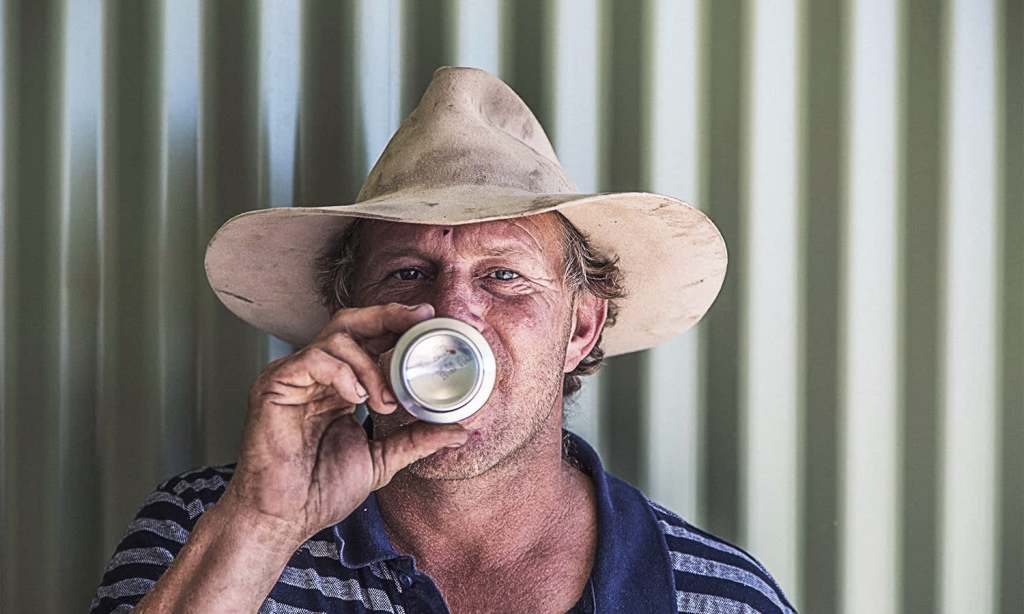We’d be lying if we said that we were surprised by the results, but Australians got drunk more times than any other nation on the planet during the pandemic.
New data released today by the Global Drugs Survey has found that Australians reported getting drunk 27 times during 2020, compared with the global average of 14.6.
“Drunk” is defined here as “‘having drunk so much that your physical and mental faculties are impaired to the point where your balance/speech was affected, you were unable to focus clearly on things and that your conversation and behaviours were very obviously different to people who know you.”
Data gathered from over 32,000 people across 22 countries shows that Australian’s top the list in heavy drinking, with Denmark, Finland, and the US follow up behind. Mexico was bottom of the list, with people there getting drunk only 8.9 times throughout the year while our Kiwi neighbours across the Tasman only got drunk 10.3 times.
The results are not hugely surprising given they are broadly in line with the results of the previous survey however Aussies actually drunk alcohol on considerably fewer days than the top ranking countries for consumption. We only drank alcohol, on average, 106 times during the year, still slightly above the global average of 101 days. People in France on the other hand drank alcohol on 132 days of the year, however the French report only being drunk 17.5 times across the year.
This would suggest that while we drink less frequently, we go harder when we do.
Lead researcher of the Australian arm of the GDS, RMIT University’s Dr Monica Barratt, said that Aussies “got on the beers” during the pandemic and that our rates of drinking appeared to be unaffected by global trends that saw drinking, on average, decline by 9% during the first pandemic year.
Barratt said that as some parts of Australia experienced extended lockdowns in 2020, most of the country was relatively unaffected by the pandemic compared with European and American nations.
“This may have something to do with us being the highest ranked country for frequency of getting drunk,” she said.
“Although we can also see drinking cultures play a role, with Nordic, British and North American nations also reporting relative high frequencies of drunken episodes.”
People appear to regret almost a quarter of the times that they have gotten drunk, with women more likely to regret drinking on average than men. The the data suggest that drinking too much too quickly, mixing drinks and being with people who engage in heavy drinking are things to avoid if you want to steer clear of the guilt.
Psychedelics as DIY Mental Health Treatment
Other data gathered through the GDS has also found that one in four of those who used psychedelics in the past 12 months reported microdosing, with three-quarters saying they experienced no side effects from the practice.
Microdosing involves taking a low dose of a psychedelic drug for their reported performance enhancing qualities or their alleged ability to reduce symptoms of stress and anxiety.
Around half of people taking prescribed medications for mental health conditions who also microdosed said that they reduced or stopped their medication entirely as a result.
Barratt said that although microdosing appeared to work for some people with mental health issues, stopping psychiatric medications without medical supervision can be dangerous.
The Therapeutic Goods Administration does not yet recognise psychedelics, like MDMA and psilocybin, as legitimate medicines to treat psychiatric conditions however many people are already turning to microdosing as a DIY solution according to Barratt.
“The TGA recently decided to hold off deciding their ruling on psychedelics, pending clinical trials,” she said.
Illegal Drug Use and Harms During the Pandemic
Globally, the use rates of most illegal drugs decreased in the last 12 months, during the pandemic and associated restrictions.
Even among those who continued to use illegal drugs during the pandemic, the rates of seeking emergency medical treatment fell.
1% of people who used MDMA before the pandemic sought emergency treatment but only 0.5% did so during the pandemic.
As you might expect, the use of drugs in public and monitored settings, like bars, clubs and festivals, was less prevalent in 2020.
“While it may indicate that home-based use was less likely to result in harm, it may also be that there were less people around, like staff, to call for help,” Barratt said.
“Using while home alone is a risk factor for overdose and may have contributed to elevated rates for some drug types.”
Rates of seeking emergency treatment rose over this time for people using new or novel synthetic drugs and methamphetamine.
The survey also asked people who used cannabis and cocaine whether they had changed their use to reduce the risks of spreading or catching COVID-19. For example, by not sharing joints or snorting equipment, and social distancing.
Over half of people who used cannabis and over 40% of people who used cocaine did report an overall reduction in COVID-19.
“Australians were less likely than respondents from other countries to report reducing risks, perhaps reflecting the reduced intensity of the pandemic on the lives of most Australians, except Victorians, during 2020,” Barratt said.
The Global Drug Survey has recently launched their 2022 survey and is currently collecting responses from people, including those who only drink alcohol or don’t consume any drugs or alcohol. You can add your information here and the data will be used to inform drug policy debate and create new harm reduction techniques.
Read more stories from The Latch and subscribe to our email newsletter.







